
0
+
Google Reviews

0
+
Oracle PBCS (Planning & Budgeting Cloud Service) Training is designed for finance professionals, analysts & planning consultants who want to master cloud-based budgeting & forecasting. This course focuses on building financial models, managing planning workflows & generating reports using Oracle Cloud. It’s important for organizations aiming to improve financial accuracy, agility & performance through modern planning tools.


Curriculum Designed by Experts
Automation with Ansible I
Introduce and review the course.
Describe the terminology and architecture of Ansible.
Install Ansible and run ad hoc commands.
Write Ansible plays and execute a playbook.
Manage variables and inclusions
Describe variable scope and precedence, manage variables and facts in a play, and manage inclusions.
Manage task control, handlers, and tags in Ansible playbooks.
Configure connection types, delegations, and parallelism
Manage encryption with Ansible Vault.
Troubleshoot the Ansible control machine and managed nodes
Implement Ansible Tower.
Implement Ansible in a DevOps environment using Vagrant.
Review tasks from the Automation with Ansible course.
Course introduction
Introduce and review the course.
This course will teach students how to deploy and use Ansible Tower by Red Hat to manage their existing Ansible projects, playbooks, and roles, perform basic maintenance and administration of the Ansible Tower installation, and configure users and teams and use them to control access to systems, projects, and other resources through role-based access controls. Students will also learn to use the visual dashboard to centrally launch, control, and monitor Ansible jobs, use the Ansible Tower application programming interface (API) to launch jobs from existing templates, and automatically schedule Ansible jobs and update the host inventory.
Install Ansible Tower by Red Hat
Configure users and teams to access Ansible Tower resources using role-based access controls
Use Ansible Tower to manage shared access to inventories and machine credentials
Create job templates and workflow job templates to standardize playbook execution
Launch playbooks and monitor and review job results using Ansible Tower
Install Ansible Tower by Red Hat and describe its architecture
Explain what Ansible Tower is and demonstrate a basic ability to navigate and use its web user interface.
Create users and teams for role-based access control
Create user accounts and organize them into teams that can be used in conjunction with role-based access control to manage administration and access to organization resources in Ansible Tower
Create inventories of machines to manage and set up credentials that will allow Ansible Tower to run jobs on those systems
Manage projects for provisioning with Ansible Tower
Create basic projects and job templates in Ansible Tower that can be used to run Ansible playbooks in order to provision and configure managed systems.
Use additional features of job templates to improve workflows by creating simple job launch forms, templates to launch multiple jobs in sequence, and to report job success or failure through external notification systems.
Update inventories dynamically and compare inventory members
Use advanced techniques to work with inventories, including dynamic generation of inventories from centralized information sources and monitoring of hosts in an inventory for configuration deviations or differences.
Comprehensive review of provisioning and managing systems using Ansible Tower
Demonstrate skills learned in this course by using a provided specification to configure and operate a new organization in Ansible Tower with certain users and teams, an inventory of hosts to manage, and an Ansible project containing playbooks and other supporting files.
Maintenance and administration of Ansible Tower
Perform routine maintenance and administration on Ansible Tower and get a basic familiarity with the command line tools and Ansible Tower API.
Improve command line productivity
Run commands more efficiently by using advanced features of the bash shell, shell scripts, and various utilities provided by Red Hat Enterprise Linux.
Schedule future tasks
Schedule commands to run in the future, either one time or on a repeating schedule.
Tune system performance
Improve system performance by setting tuning parameters and adjusting scheduling priority of processes.
Control access to files with ACLs
Interpret and set access control lists (ACLs) on files to handle situations requiring complex user and group access permissions.
Manage SELinux security
Protect and manage the security of a server by using SELinux.
This course is geared toward Windows system administrators, network administrators, and other system administrators who are interested in supplementing current skills or backstopping other team members, in addition to Linux system administrators who are responsible for these tasks:
Configuring, installing, upgrading, and maintaining Linux systems using established standards and procedures
Providing operational support
Managing systems for monitoring system performance and availability
Writing and deploying scripts for task automation and system administration
Ansible is a powerful automation tool used for configuration management, application deployment, and orchestration. Learning Ansible equips you with the skills needed to automate repetitive tasks, streamline workflows, and increase efficiency in IT operations.
By automating manual tasks, Ansible helps organizations save time and reduce operational costs. With Ansible, you can deploy and manage infrastructure, applications, and services more quickly and consistently, leading to faster time-to-market and improved resource utilization.
Ansible enables you to manage infrastructure and applications at scale, whether you're working with a handful of servers or a large, distributed environment. With Ansible's declarative language and idempotent nature, you can ensure consistent configurations and deployments across your entire infrastructure.
Ansible promotes the principles of Infrastructure as Code (IaC), allowing you to define and manage infrastructure using code. With Ansible playbooks, you can describe your desired state infrastructure, version control your configurations, and automate provisioning and configuration tasks.
Ansible integrates seamlessly with other DevOps tools and technologies, such as version control systems (e.g., Git), CI/CD pipelines (e.g., Jenkins), cloud platforms (e.g., AWS, Azure), and container orchestration platforms (e.g., Kubernetes). Learning Ansible can complement your existing DevOps skill set and enhance your ability to build end-to-end automation pipelines.
Ansible skills are in high demand in the job market, with many organizations seeking professionals who can effectively leverage automation to improve their IT operations. By completing an Ansible course and obtaining relevant certifications, you can enhance your career prospects and unlock new opportunities in fields such as DevOps, SysAdmin, and Cloud Engineering.




At Radical Technologies, we are committed to your success beyond the classroom. Our 100% Job Assistance program ensures that you are not only equipped with industry-relevant skills but also guided through the job placement process. With personalized resume building, interview preparation, and access to our extensive network of hiring partners, we help you take the next step confidently into your IT career. Join us and let your journey to a successful future begin with the right support.
At Radical Technologies, we ensure you’re ready to shine in any interview. Our comprehensive Interview Preparation program includes mock interviews, expert feedback, and tailored coaching sessions to build your confidence. Learn how to effectively communicate your skills, handle technical questions, and make a lasting impression on potential employers. With our guidance, you’ll walk into your interviews prepared and poised for success.
At Radical Technologies, we believe that a strong professional profile is key to standing out in the competitive IT industry. Our Profile Building services are designed to highlight your unique skills and experiences, crafting a resume and LinkedIn profile that resonate with employers. From tailored advice on showcasing your strengths to tips on optimizing your online presence, we provide the tools you need to make a lasting impression. Let us help you build a profile that opens doors to your dream career.

Infrastructure Provisioning
Implementing automated infrastructure provisioning and configuration management using Ansible. This may include setting up servers, networking devices, and other infrastructure components using playbooks and roles.

Applications Deployment
Automating the deployment and orchestration of applications across development, testing, and production environments. This could involve deploying web servers, databases. middleware, and other application components using Ansible

Continuous Integration
Integrating Ansible into CI/CD pipelines to automate software. build, test, and deployment processes. This may include automating the creation of build artifacts, running tests, and deploying applications to various environments.

I enrolled in the Linux RHEL 8 Course in Bangalore at Radical Technologies and was thoroughly impressed by the detailed Linux RHEL 8 Classes. The instructors are top-notch!
Radical Technologies offers the best Linux Training in Bangalore. The Linux RHEL 8 Course is well-structured, and the hands-on experience is invaluable.
Completing the Redhat Linux Course in Bangalore at Radical Technologies was a game-changer for my career. The Linux RHEL 8 Training is practical and thorough.
Completing the Redhat Linux Course in Bangalore at Radical Technologies was a game-changer for my career. The Linux RHEL 8 Training is practical and thorough.
I highly recommend the Linux RHEL 8 Course at Radical Technologies in Bangalore. The trainers are experienced, and the Linux RHEL 8 Classes are very engaging.
Radical Technologies in Bangalore offers exceptional Linux RHEL 8 Training. The course content is up-to-date, and the Linux RHEL 8 Certification has boosted my resume.
The Linux RHEL 8 Training in Bangalore at Radical Technologies is top-quality. The instructors are knowledgeable, and the Linux RHEL 8 Institute in Bangalore provides great support.
I took the Redhat Linux Course at Radical Technologies in Bangalore and found the Linux RHEL 8 Classes to be very comprehensive. The certification process was smooth and well-guided.
Radical Technologies' Linux RHEL 8 Course in Bangalore is fantastic. The training sessions are interactive, and the Linux RHEL 8 Certification in Bangalore is recognized globally.
The Linux RHEL 8 Training in Bangalore at Radical Technologies was an excellent experience. The course material is detailed, and the Linux RHEL 8 Institute in Bangalore is very professional.
Radical Technologies provides the best Redhat Training in Bangalore. The Linux RHEL 8 Course is thorough, and the certification preparation is excellent.
I am grateful for the Linux RHEL 8 Classes in Bangalore at Radical Technologies. The instructors are supportive, and the Linux RHEL 8 Certification in Bangalore has opened new career opportunities for me.
The Redhat Linux Course in Bangalore at Radical Technologies is well-designed. The Linux RHEL 8 Training helped me understand complex concepts with ease
Radical Technologies in Bangalore is the best place for Linux RHEL 8 Training. The instructors are experts, and the Linux RHEL 8 Certification is well-respected.
I had a great learning experience with the Linux RHEL 8 Course at Radical Technologies in Bangalore. The Linux RHEL 8 Classes are detailed and practical.
Radical Technologies offers an excellent Linux RHEL 8 Certification Course Online. The flexibility and quality of the Red Hat Linux Online Training are commendable.
The Linux Developer Training in Bangalore at Radical Technologies prepared me well for the industry. The Linux RHEL 8 Course content is up-to-date and relevant.
Radical Technologies in Bangalore provides top-notch Linux RHEL 8 Training. The hands-on sessions and Linux RHEL 8 Certification in Bangalore are highly beneficial.
I highly recommend the Linux RHEL 8 Institute in Bangalore, Radical Technologies. The Linux RHEL 8 Course is comprehensive, and the certification is well-recognized.
The Linux Training in Bangalore at Radical Technologies is exceptional. The Redhat Linux Course content is detailed, and the trainers are very knowledgeable.
I completed the Linux RHEL 8 Course at Radical Technologies in Bangalore and found the Linux RHEL 8 Classes very informative. The certification process was smooth.
Radical Technologies' Red Hat Linux Certification Course Online is excellent. The course is well-structured, and the Red Hat Linux Online Training is very convenient.
The Linux RHEL 8 Training in Bangalore at Radical Technologies was a great investment. The course content is practical, and the Linux RHEL 8 Certification in Bangalore is highly valued.
Radical Technologies in Bangalore offers the best Linux RHEL 8 Course. The training is detailed, and the Linux RHEL 8 Certification in Bangalore has greatly enhanced my career prospects.







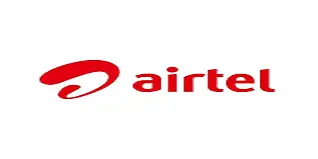
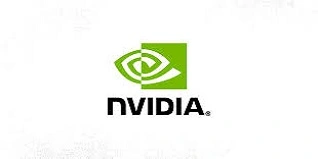
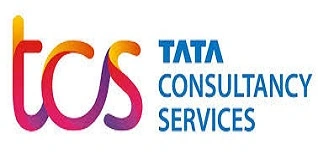

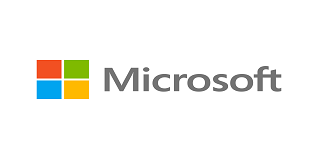
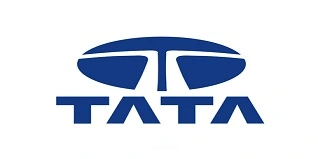
The Redhat Linux Course at Radical Technologies in Bangalore is a comprehensive program that covers all essential aspects of Linux RHEL 8, from basic to advanced levels, preparing students for the industry-recognized Linux RHEL 8 Certification.
The Linux RHEL 8 Course in Bangalore covers system administration, networking, security, shell scripting, and more, ensuring students gain practical and theoretical knowledge necessary for the Linux RHEL 8 Certification.
You can enroll in the Linux RHEL 8 Training in Bangalore by visiting the Radical Technologies website, contacting our admissions team, or visiting our institute in person.
Yes, the Linux RHEL 8 Certification in Bangalore from Radical Technologies is recognized globally, making it a valuable addition to your professional credentials.
Yes, the Linux RHEL 8 Classes in Bangalore at Radical Technologies are designed for both beginners and experienced professionals, ensuring everyone can benefit from the training.
The duration of the Linux RHEL 8 Course in Bangalore varies depending on the chosen program, typically ranging from a few weeks to a few months.
Yes, Radical Technologies offers Red Hat Linux Online Training, allowing students to learn from anywhere and at their own pace.
There are no strict prerequisites for the Linux RHEL 8 Training in Bangalore, but basic knowledge of computer systems and networking can be beneficial.
The cost of the Redhat Linux Course in Bangalore varies depending on the specific program and duration. Please contact Radical Technologies for detailed pricing information.
Yes, Radical Technologies provides placement assistance to students who complete the Linux RHEL 8 Certification in Bangalore, helping them secure jobs in the IT industry.
The Linux RHEL 8 Classes in Bangalore include a mix of lectures, hands-on labs, and real-world projects to ensure comprehensive learning.
Yes, Radical Technologies offers RHCSA Training in Bangalore as part of its comprehensive Linux RHEL 8 Course, preparing students for the RHCSA certification exam.
Students have access to extensive resources, including course materials, hands-on labs, practice exams, and support from experienced instructors during the Linux RHEL 8 Training in Bangalore.
Yes, Radical Technologies offers flexible scheduling options for the Redhat Linux Course in Bangalore, including weekday and weekend classes to accommodate different schedules.
The Linux Developer Training in Bangalore at Radical Technologies provides students with practical skills, real-world projects, and in-depth knowledge of Linux RHEL 8, making them well-prepared for careers in the IT industry.
Basavanagudi | HSR Layout | Sadashivanagar | Jayanagar | Koramangala | Whitefield | Banashankari | Marathahalli | BTM Layout | Electronic City | Rajajinagar | Domlur | Indiranagar | Malleshwaram | Yelahanka | Cooke Town | Nagarbhavi | Bannerghatta Road | Chandapura | Dasarahalli | Devanahalli | Anandnagar | Avenue Road | Byatarayanapura
I had an amazing experience with this service. The team was incredibly supportive and attentive to my needs. The quality of the work exceeded my expectations. I would highly recommend this to anyone looking for reliable and professional service."
I had an amazing experience with this service. The team was incredibly supportive and attentive to my needs. The quality of the work exceeded my expectations. I would highly recommend this to anyone looking for reliable and professional service."
I had an amazing experience with this service. The team was incredibly supportive and attentive to my needs. The quality of the work exceeded my expectations. I would highly recommend this to anyone looking for reliable and professional service."
I had an amazing experience with this service. The team was incredibly supportive and attentive to my needs. The quality of the work exceeded my expectations. I would highly recommend this to anyone looking for reliable and professional service."
I had an amazing experience with this service. The team was incredibly supportive and attentive to my needs. The quality of the work exceeded my expectations. I would highly recommend this to anyone looking for reliable and professional service."
Red Hat Linux Certification is a prestigious credential recognized globally for its emphasis on practical skills and knowledge in Linux system administration and related technologies. This certification validates an individual’s proficiency in managing and troubleshooting Red Hat Enterprise Linux (RHEL) environments, making it a valuable asset for IT professionals aiming to excel in the open-source ecosystem.
Red Hat Linux, particularly Red Hat Enterprise Linux (RHEL), is renowned for its stability, security, and performance in enterprise environments. Its versatility allows it to be used in various applications across different industries. Here are some of the key applications of Red Hat Linux:
1.Server Operating System
Web Servers: RHEL is commonly used to host web servers, including Apache and Nginx, due to its robust performance and security features.
Database Servers: It is widely used to run database management systems like MySQL, PostgreSQL, and Oracle, providing a reliable platform for data storage and management.
Application Servers: RHEL supports various application servers, including JBoss, Tomcat, and WildFly, making it ideal for deploying enterprise applications.
2. Cloud Computing
Private Clouds: RHEL is a popular choice for building private cloud environments using platforms like OpenStack and Red Hat Virtualization.
Public Clouds: It is available on major public cloud providers like AWS, Microsoft Azure, and Google Cloud, offering scalability and flexibility for cloud-based applications.
Hybrid Clouds: RHEL enables seamless integration between on-premises infrastructure and cloud environments, supporting hybrid cloud strategies.
3. Virtualization
KVM (Kernel-based Virtual Machine): RHEL includes KVM for virtualization, allowing multiple virtual machines to run on a single physical host.
Red Hat Virtualization (RHV): RHV is a comprehensive virtualization solution for managing virtual servers and desktops, based on RHEL.
4. Containerization
Docker: RHEL supports Docker for containerizing applications, providing a consistent runtime environment across different systems.
OpenShift: Red Hat OpenShift is a Kubernetes-based platform for developing, deploying, and managing containerized applications, offering advanced features for enterprise environments.
5. Development Environment
Software Development: RHEL provides a stable and secure platform for software development, supporting a wide range of programming languages and development tools.
DevOps: It integrates well with DevOps tools and practices, enabling continuous integration and continuous deployment (CI/CD) pipelines.
6. Networking
Network Services: RHEL is used to provide various network services such as DNS, DHCP, FTP, and more.
Firewall and Security: It includes robust firewall and security features, making it suitable for use as a network security appliance.
7. Big Data and Analytics
Hadoop and Spark: RHEL supports big data platforms like Hadoop and Spark, providing a reliable and scalable environment for big data processing and analytics.
Data Warehousing: It is used for data warehousing solutions, offering high performance and reliability for large-scale data storage and analysis.
8. High-Performance Computing (HPC)
Scientific Computing: RHEL is used in scientific computing environments for tasks that require significant computational power, such as simulations and data analysis.
Cluster Computing: It supports the creation of compute clusters for parallel processing and distributed computing.
9. Internet of Things (IoT)
Edge Computing: RHEL is used in edge computing scenarios, providing a reliable platform for processing data close to the source in IoT applications.
IoT Gateways: It serves as a secure and stable operating system for IoT gateways, managing data flow between IoT devices and the cloud.
10. Enterprise Applications
ERP and CRM Systems: RHEL is often used to host enterprise resource planning (ERP) and customer relationship management (CRM) systems, ensuring reliable and secure operation.
Content Management Systems: It supports various content management systems (CMS) such as Drupal, Joomla, and WordPress, providing a stable environment for managing digital content.
Red Hat Linux’s extensive capabilities and robust features make it a versatile platform suitable for a wide array of applications across different industries. Its reliability, security, and performance ensure that it continues to be a preferred choice for enterprises worldwide.
Radical Technologies, the premier institute in Bangalore, specializes in comprehensive Redhat Linux courses, including the esteemed Linux RHEL 8 Course. We offer a range of Linux RHEL 8 Training programs designed to equip students with the skills needed for the industry-recognized Linux RHEL 8 Certification.
Our institute is renowned for its in-depth Linux RHEL 8 Classes, ensuring that each student receives hands-on experience and thorough knowledge. Located in the heart of Bangalore, Radical Technologies is the ideal destination for those seeking a top-tier Linux RHEL 8 Institute.
The Redhat Linux Course in Bangalore at Radical Technologies covers all essential aspects, from foundational knowledge to advanced techniques, ensuring students are well-prepared for the Linux RHEL 8 Certification in Bangalore. Our experienced instructors lead engaging Linux RHEL 8 Classes in Bangalore, focusing on practical applications and real-world scenarios.
We also offer flexible learning options, including Red Hat Linux Online Training, allowing students to pursue their education from anywhere. For those aiming for RHCSA Training in Bangalore, our institute provides targeted courses to help you achieve your certification goals.
At Radical Technologies, our Linux Training in Bangalore is designed to meet the evolving demands of the IT industry. Whether you’re looking for a Linux Developer Training in Bangalore or a comprehensive Linux Course in Bangalore, our programs are tailored to provide the best possible education.
Join us at Radical Technologies and advance your career with our expertly crafted Linux RHEL 8 Training in Bangalore. Our commitment to excellence makes us the leading choice for Redhat Training in Bangalore, and our proven track record speaks volumes about the quality of our education and the success of our students.


(Our Team will call you to discuss the Fees)

(Our Team will call you to discuss the Fees)

The Redhat Linux Course at Radical Technologies in Bangalore exceeded my expectations. The comprehensive Linux RHEL 8 Training prepared me well for the Linux RHEL 8 Certification.